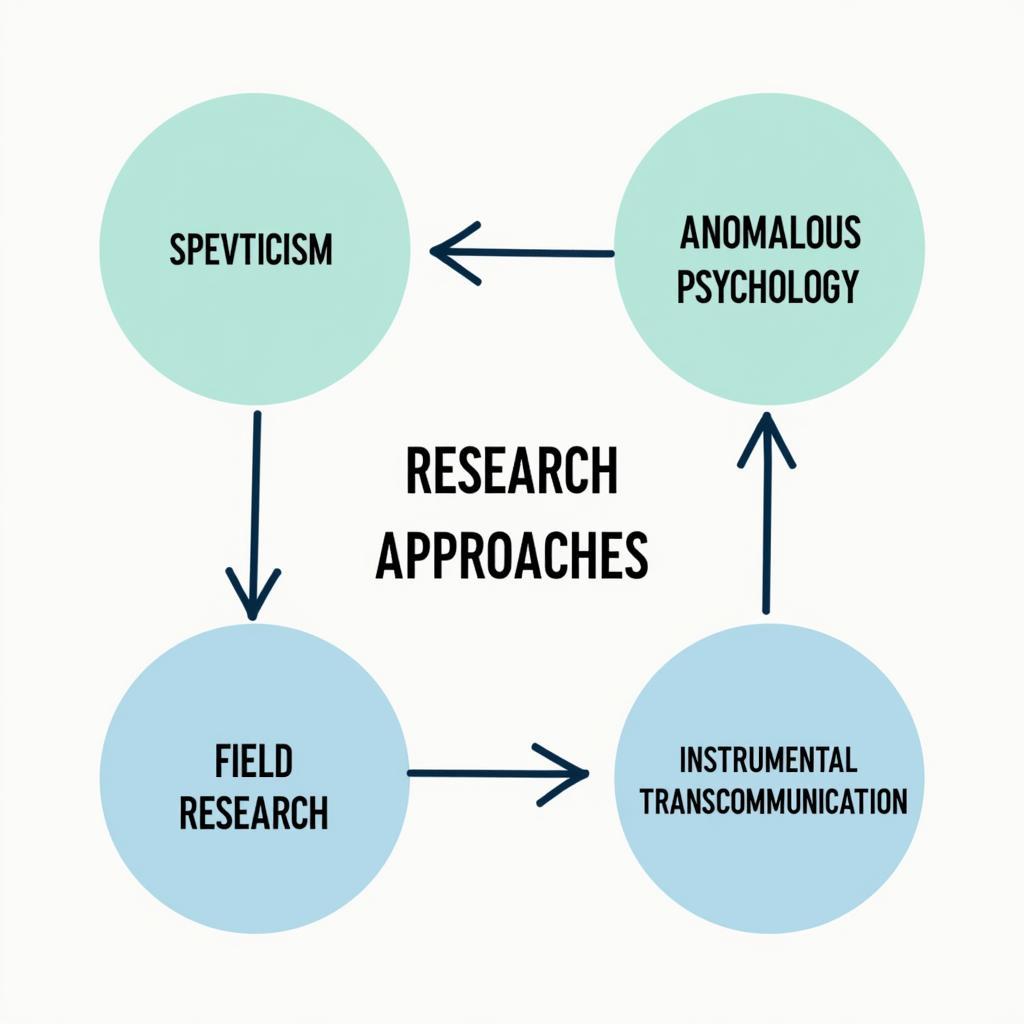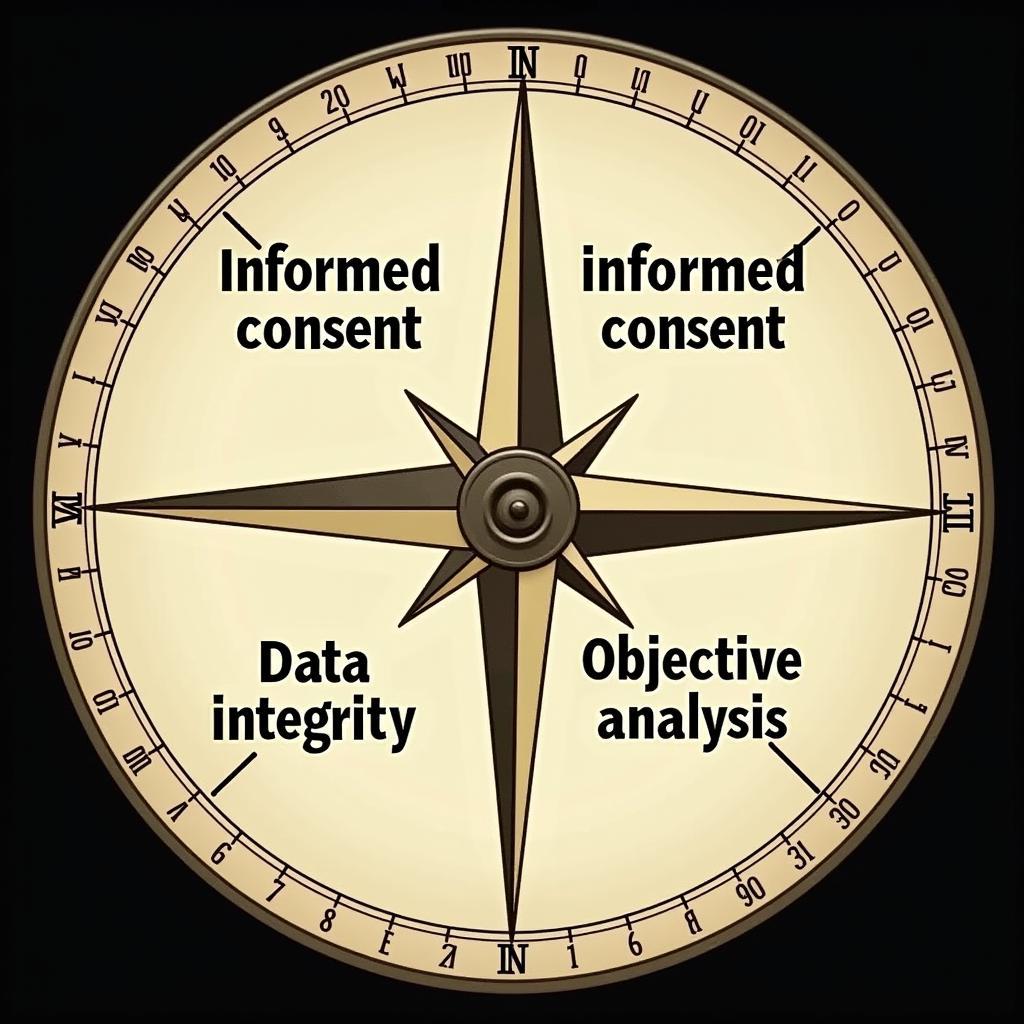The world of paranormal research, much like the phenomena it seeks to understand, often feels shrouded in mystery. A key element in separating genuine investigation from mere speculation is a robust “Research Philosophy.” This foundation shapes how we approach the unknown, guiding our methods and ultimately influencing the conclusions we draw.
The Bedrock of Belief: Why Research Philosophy Matters in Paranormal Investigation
Imagine two paranormal investigators arriving at a reportedly haunted house. One charges in, driven by a thirst for the dramatic and a pre-existing belief in ghosts. The other meticulously documents the environment, noting temperature fluctuations, electromagnetic fields, and seeking logical explanations before considering the paranormal. This difference in approach stems from their individual research philosophies.
Without a defined research philosophy:
- Bias can cloud judgment: Preconceived notions can lead to misinterpretations of evidence, favoring explanations that confirm existing beliefs.
- Methodology lacks rigor: Investigations become haphazard, lacking the systematic approach needed to yield reliable results.
- Conclusions hold little weight: Findings, if any, are easily dismissed due to a lack of credible methodology and potential bias.
Pillars of Paranormal Research Philosophy: Key Approaches
 Types of Paranormal Research Approaches
Types of Paranormal Research Approaches
While diverse viewpoints exist within the field, some common research philosophies shape paranormal investigations:
1. The Skeptic’s Stance: Seeking Natural Explanations
Skepticism, often misconstrued as outright disbelief, plays a crucial role. This approach operates under the assumption that there’s a rational explanation for every alleged paranormal occurrence.
- Focus: Identifying potential flaws in evidence, debunking hoaxes, and seeking out natural causes.
- Methodology: Emphasizes scientific methods, controlled experiments, and rigorous data analysis.
- Strengths: Provides a necessary counterbalance to sensationalism, promoting critical thinking and ensuring rigorous investigation.
2. Delving into the Mind: The Anomalous Psychology Perspective
This approach explores the intersection of the human psyche and reported paranormal phenomena.
- Focus: Understanding how perception, memory, and belief systems influence our interpretations of events.
- Methodology: Employs psychological tests, interviews, and statistical analysis to identify patterns and correlations.
- Strengths: Sheds light on potential psychological and social factors that contribute to paranormal experiences.
3. Boots on the Ground: The Field Researcher’s Toolkit
Field research forms the backbone of many paranormal investigations, venturing into the heart of alleged activity.
- Focus: Gathering firsthand data, documenting environmental factors, and observing potential phenomena.
- Methodology: Utilizes a combination of observation, interviews, photography, audio/video recording, and environmental monitoring equipment.
- Strengths: Provides valuable on-site data and qualitative observations that can supplement other research approaches.
4. Bridging the Gap: Instrumental Transcommunication
This approach seeks to establish communication with the “other side” through technology.
- Focus: Utilizing electronic devices to capture potential spirit voices (EVPs), images, or other forms of communication.
- Methodology: Involves setting up recording equipment in allegedly haunted locations and analyzing the resulting data.
- Strengths: Offers a potentially objective means of documenting paranormal activity, though interpretations of results can vary.
The Quest for Truth: Navigating the Crossroads of Research Philosophies
 Ethical Considerations in Paranormal Research
Ethical Considerations in Paranormal Research
The true strength of paranormal research lies in the interplay of diverse research philosophies. A holistic approach combines:
- Healthy Skepticism: Questioning evidence and seeking natural explanations.
- Open-Mindedness: Remaining receptive to the possibility of the unknown.
- Methodological Rigor: Employing systematic and ethical investigative techniques.
- Interdisciplinary Collaboration: Drawing upon insights from various fields like psychology, physics, and sociology.
The pursuit of understanding paranormal phenomena demands more than just a fascination with the unknown. It requires a well-defined research philosophy—a compass guiding us through the shadows of doubt and leading us, perhaps, to a greater understanding of the world beyond our senses.
Frequently Asked Questions about Research Philosophy in Paranormal Investigations
- Is one research philosophy better than another? No single approach holds a monopoly on truth. Each offers unique strengths and limitations.
- Can research philosophies be combined? Absolutely! A multi-faceted approach often yields the most comprehensive insights.
- How can I develop my own research philosophy? Reflect on your beliefs, research different approaches, and experiment with methodologies to find what resonates with you.
- Why is ethical conduct crucial in Paranormal Research? Respecting privacy, obtaining informed consent, and maintaining data integrity are essential for ethical and credible investigations.
- Where can I learn more about different research methods used in paranormal investigation? You can delve deeper into this fascinating topic through our articles on research on philosophy, research discipline, and research programs for high schoolers.
Need further assistance in unraveling the mysteries of the paranormal? Contact our team of experts at 0904826292, email us at research@gmail.com, or visit us at No. 31, Alley 142/7, P. Phú Viên, Bồ Đề, Long Biên, Hà Nội, Việt Nam. We’re available 24/7 to guide you on your journey into the unknown.